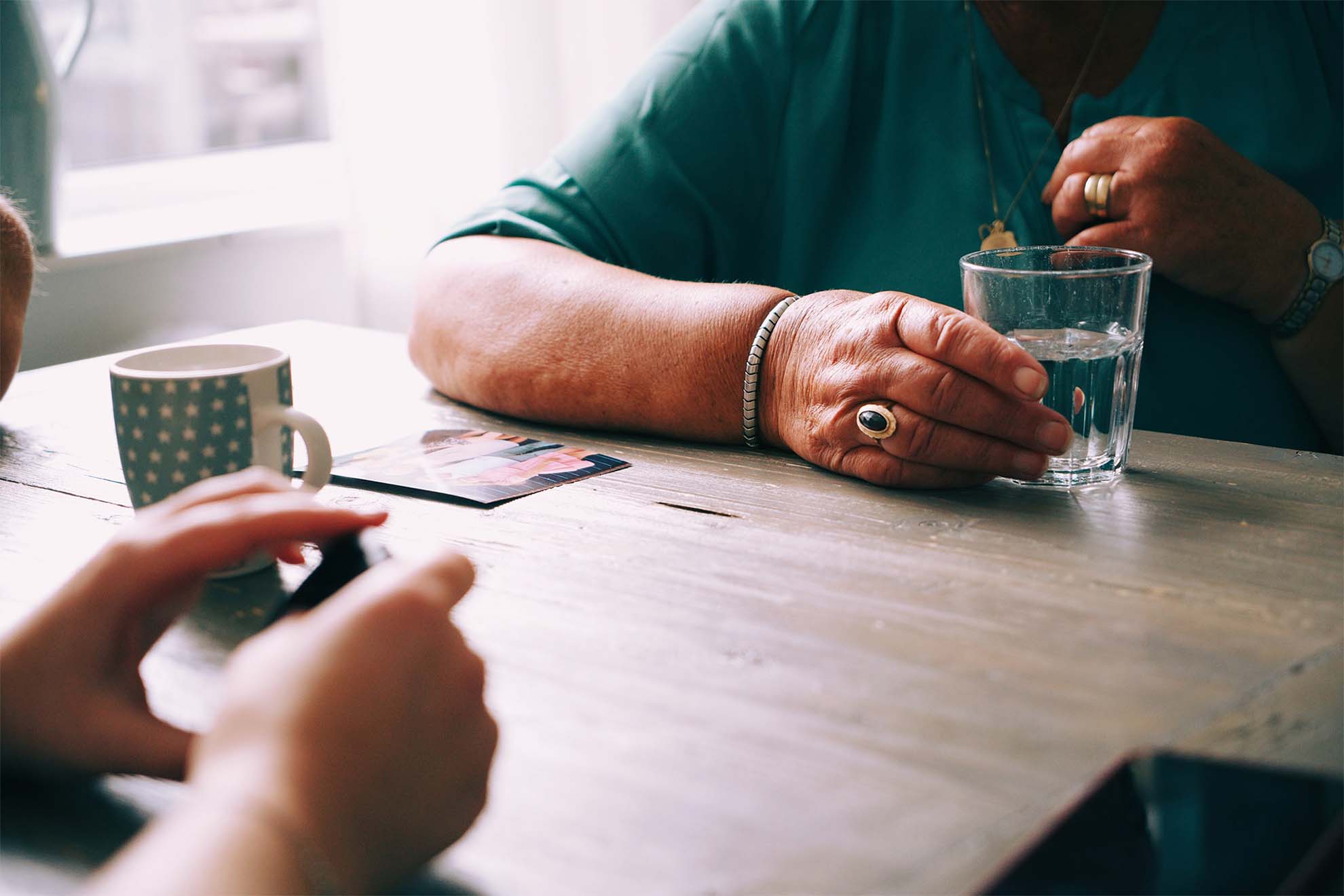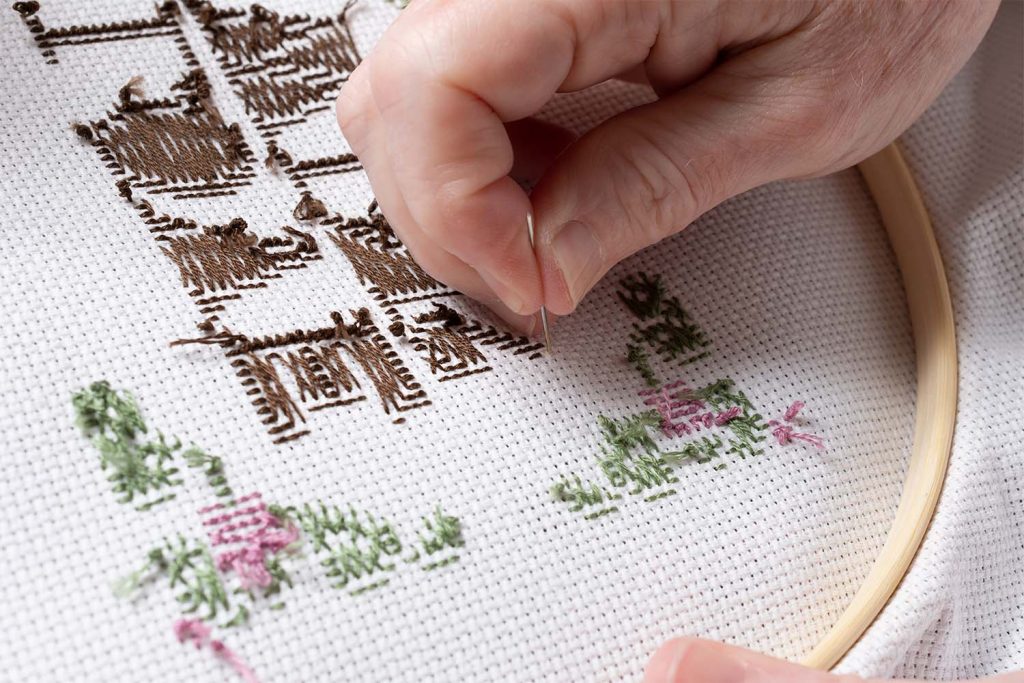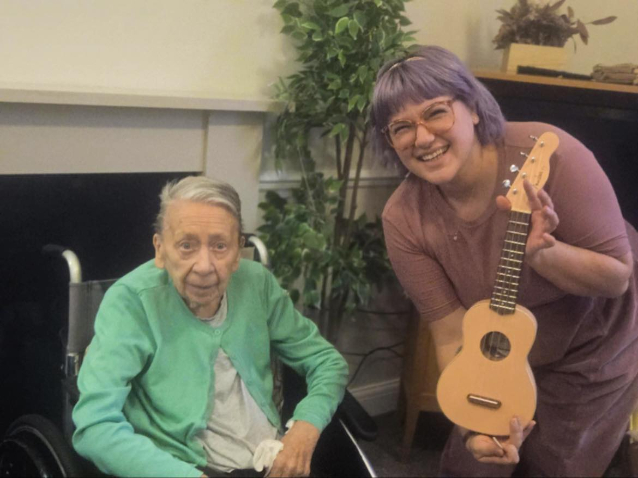A Guide to Supporting Dementia Residents with Activities

Dementia affects millions of people worldwide, significantly impacting their daily lives, cognitive abilities, and overall wellbeing. For people living with dementia, engaging in suitable activities can offer a sense of purpose, improve mood, and enhance mental and physical health.
Carers, family members, and occupational therapists play an essential role in supporting people with dementia through carefully chosen activities tailored to their abilities, interests, and life experiences.

Understanding the Importance of Activities for Dementia Residents
Engaging in activities helps maintain skills, encourages independence, and supports mental wellbeing. People with dementia often experience memory loss, difficulty with everyday tasks, and changes in their sense of self.
Activities can provide structure, promote self esteem, and create enjoyable moments that help reduce stress. Research from organisations like the Alzheimer's Society and Dementia UK highlights the importance of keeping people with dementia active to slow cognitive decline and enhance quality of life.
As dementia progresses, people may struggle with initiating activities on their own, making the role of carers and loved ones even more crucial. Introducing activities that align with the person's preferences and abilities can create a sense of familiarity and comfort. Additionally, regular engagement in structured activities can improve mood, reduce agitation, and lessen anxiety levels.
It is essential to recognise that dementia affects each person differently, and what works for one individual may not be suitable for another. By being aware of a persons past interests, hobbies, and skills, carers can develop personalised approaches to keep them engaged. A well-thought-out activity plan can provide meaningful interactions, allowing people with dementia to feel valued and involved.
Choosing Suitable Activities
When selecting activities, it is crucial to consider the persons preferences, past experiences, and current abilities. Activities should be adaptable to different stages of dementia and take into account their physical and cognitive skills. Below are some examples of activities that can benefit dementia residents:
Reminiscence Therapy
Reminiscence therapy involves encouraging people with dementia to recall past experiences through storytelling, music, photos, or familiar objects. This form of therapy can evoke positive emotions, create meaningful conversations, and foster a sense of identity. Carers and family members can use memory boxes, old songs, or family photo albums to begin reminiscence sessions.
Encouraging conversations about significant life events, childhood memories, or past careers can spark joy and enhance social interaction. This approach helps reinforce a persons sense of self and gives them an opportunity to share cherished moments with others.
Physical Activities
Exercise is beneficial for both physical and mental wellbeing. Activities such as a walking group, chair exercises, or light stretching can help maintain mobility, reduce the risk of falls, and improve mood. Research suggests that physical activity can also slow the progression of dementia symptoms and enhance overall health.
Dementia-friendly exercise programs, such as gentle yoga, tai chi, or dancing, can be tailored to different levels of mobility. Physical activities can be both social and enjoyable, reinforcing a sense of belonging within a group setting. Simple exercises, such as walking or stretching, also help alleviate restlessness and promote better sleep patterns.

Music Therapy
Music has a powerful effect on the brain, often triggering memories and emotions. Playing familiar songs or encouraging people with dementia to participate in singing or rhythmic activities can lead to moments of joy and connection. Music can be especially helpful for those who struggle with verbal communication, providing a way to express feelings and engage with others.
Introducing personalised playlists based on a persons favourite songs, or musical era can significantly enhance their mood. Live music sessions, group singing, or even dancing to well-known tunes can further support engagement and relaxation.
Puzzles and Cognitive Stimulation
Brain-stimulating activities, such as puzzles, word searches, and simple games, can help maintain cognitive abilities and problem solving skills. Occupational therapists often recommend these activities to keep the mind active and engaged. Selecting puzzles that match the persons abilities is essential to ensure they feel successful and not frustrated.
Games designed to improve memory and concentration, such as matching games or number-based puzzles, can help slow cognitive decline. Additionally, creative activities such as storytelling, writing, or arts and crafts can stimulate the brain while also promoting self expression.
Gardening and Nature-Based Activities
For many people, spending time in nature or engaging in gardening can be therapeutic. Simple gardening tasks such as watering plants, arranging flowers, or growing herbs can provide sensory stimulation and a sense of accomplishment. Being outdoors also supports mental wellbeing and reduces stress.
Engaging in outdoor activities can provide fresh air, vitamin D, and a calming environment. Even those with limited mobility can participate by potting plants indoors or assisting with garden-related projects, which fosters a sense of achievement and connection to nature.
Household and Everyday Tasks
Many people with dementia find comfort in familiar tasks from their own home, such as folding laundry, setting the table, or sorting objects. Encouraging involvement in these activities fosters independence and provides a sense of normalcy. These tasks should be adapted to the persons abilities to ensure they remain enjoyable and achievable.
Repetitive tasks that align with past routines can provide reassurance and structure. Completing these small yet meaningful activities can boost self-esteem and allow people with dementia to feel productive and engaged in their daily environment.
Social and Community Engagement
Encouraging social interaction is crucial in preventing isolation and loneliness. Group activities, coffee mornings, and community involvement help maintain relationships and provide a sense of belonging. Carers should be aware of the importance of social connections and create opportunities for residents to engage with friends, family, and their community.

Regular visits from family members, pet therapy sessions, and intergenerational activities with children can further enhance social wellbeing. Establishing meaningful social interactions can create a sense of community, promoting emotional support and reducing feelings of loneliness.
Overcoming Challenges in Activity Engagement
While activities offer significant benefits, carers may encounter challenges in getting a person with dementia to engage. Factors such as mood changes, fatigue, or confusion can affect participation. Here are some ways to address these challenges:
- Be flexible: Adapt activities based on how the person feels at the time.
- Create a calm environment: Reducing noise and distractions can help the person focus and enjoy the activity.
- Offer gentle encouragement: Avoid pressure and allow the person to participate at their own pace.
- Monitor wellbeing: Regularly assess whether activities remain suitable and adjust as needed.
Being mindful of a persons energy levels and emotional state can help determine the best times for engagement. Activities should be offered in a relaxed manner, ensuring they remain a source of enjoyment rather than a stressful experience.
The Role of Carers and Family Members
Carers and family members play a vital role in supporting people with dementia. Understanding the persons needs, preferences, and abilities is essential in making activities meaningful. Providing reassurance, encouragement, and companionship can make a significant difference in how a person with dementia experiences daily life. Collaborating with professional carers and healthcare providers can also ensure that activities are well-suited to a persons evolving needs. Carers should continuously review and modify activities based on the persons changing abilities to maintain a positive experience.
Supporting dementia residents with activities requires patience, creativity, and a deep understanding of their unique needs. Engaging in suitable activities can help improve mood, maintain cognitive and physical health, and enhance overall wellbeing. Organisations like the Alzheimer's Society and Dementia UK provide valuable resources and guidance for carers looking to create positive experiences for people living with dementia.
By focusing on activities that align with an individuals interests , life experiences, and abilities, carers can foster a sense of joy, connection, and independence in those affected by dementia. Thoughtfully planned activities can significantly contribute to a persons quality of life, helping them navigate their dementia journey with dignity and engagement.
For more information one dementia activities we offer, or for how out care can help you or a loved one, please contact us today.






